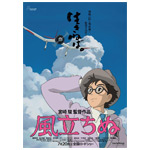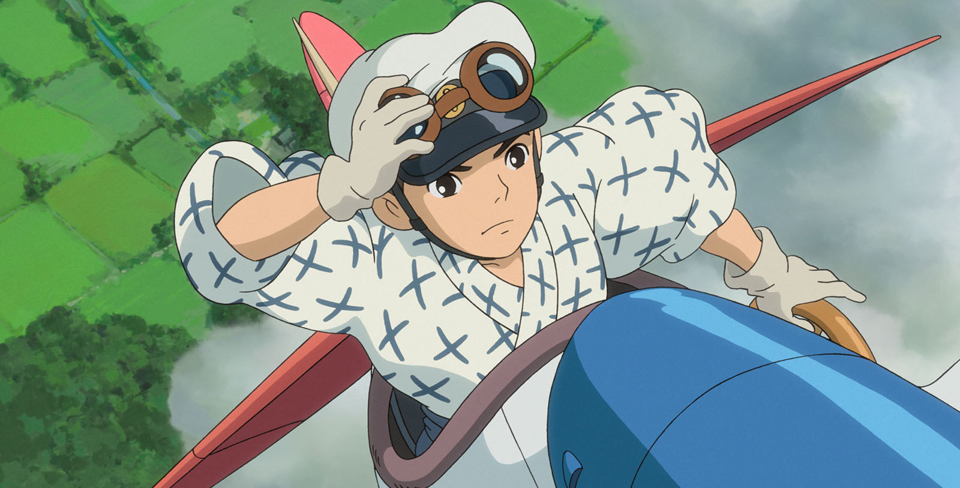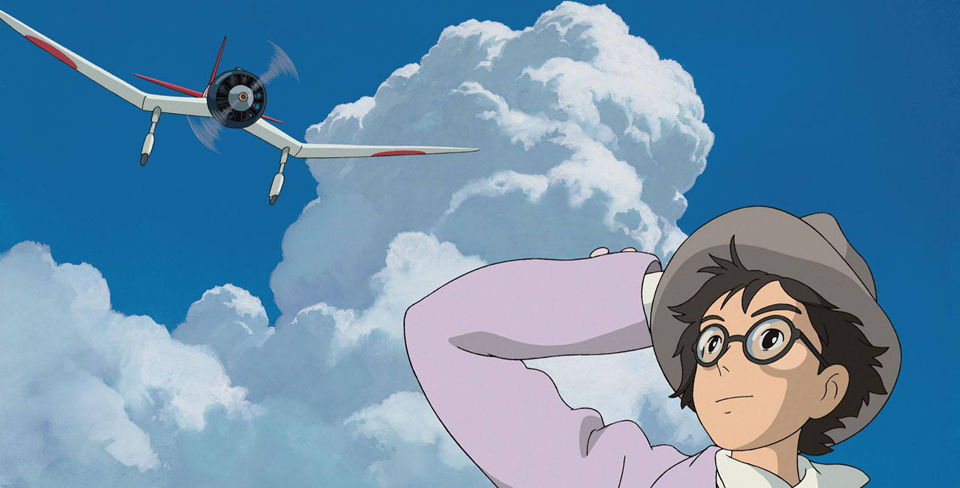
Legendary Japanese animation director Hayao Miyazaki bows out of the limelight with his final Studio Ghibli feature, The Wind Rises.
Last month marked the end of an era. Hayao Miyazaki, arguably the most acclaimed and admired figurehead of the Japanese animation industry, announced his retirement following the successful local theatrical debut of his 11th directorial feat, The Wind Rises (Kaze Tachinu). The magical, maturely complex and–of course–beautifully animated 2D film is a fitting high note on which to end a legendary career, and grossed over $97 million in Japan in its first months of release.
For the past 34 years, the world renowned manga-ka and animation writer, director and producer has enchanted audiences at home and abroad, bringing his particular brand of artistry and storytelling to international attention with films like Nausicaa of the Valley of the Wind, My Neighbor Totoro, Porco Rosso, Princess Mononoke, Ponyo and the Oscar-winning Spirited Away, among many other treasured features and shorts from the studio he co-founded with Isao Takahata and Toshio Suzuki, Studio Ghibli.
“I wanted to convey the message to children that this life is worth living,” the 72-year-old artist stated during the packed September press conference announcing his intentions, which was characteristically full of humor and heart. “I’ve mentioned that I would retire many times in the past, so a lot of you must be thinking ‘Oh, not again,’ but this time I am quite serious … My work is really about sitting at the desk and drawing. And at my age, you just reach a point when you have to put down the pencil a bit earlier each day and go home.”
Miyazaki insisted during the announcement that he would also put aside short film and screenwriting duties after retirement, making The Wind Rises his ultimate theatrical effort. The film is based on the director’s original manga, which in turn is loosely derived from author Tatsuo Hori’s fictionalized biography of World War II fighter plane designer Jiro Horikoshi. The story follows its aspirant hero (voiced by Evangelion director Hideaki Anno in the Japanese version) as he struggles to fulfill his dreams, and the doomed love story that complements his professional journey.
The film’s content matter, focusing on the life of the man who designed the notorious A6M Zero planes used in kamikaze attacks in the Pacific and at Pearl Harbor, naturally sparked controversy among Japan nationals and Miyazaki’s fans. The director’s political outspokenness (Miyazaki is a pacifist who as a young man protested the war) did not win him any friends with the country’s conservatives, but as a true artist he defended his final work to the press in terms of humanity:
— Director Hayao Miyazaki
“My wife and staff would ask me, ‘Why make a story about a man who made weapons of war?'” the director noted in a 2011 interview with Japanese magazine Cut. “And I thought they were right. But one day, I heard that Horikoshi had once murmured, ‘All I wanted to do was to make something beautiful.’ And then I knew I’d found my subject … Horikoshi was the most gifted man of his time in Japan. He wasn’t thinking about weapons … Really all he desired was to make exquisite planes.”
The studio also came under fire for the amount of scenes depicting smoking in the film–which, while admittedly a common habit in the early 20th century, is widely considered inappropriate for animated films which tend to attract young audiences. The non-profit Japan Society for Tobacco Control heavily criticized Miyazaki–a notoriously heavy smoker–for the scenes, and even launched an online petition to have them removed. However, if theatergoers had a problem with it, the box office numbers certainly don’t reflect it. It remains to be seen whether Disney, set to release the film in North America, will cut down on the questionable content in the English-language version.
Having debuted to warm acclaim in its home country as well as internationally at the Venice and Telluride film festivals, The Wind Rises will be making a bid for an Academy Award nomination as Disney (through its Touchstone Pictures banner) presents a qualifying theatrical run in Los Angeles on November 8. A wide-release date for the U.S. has yet to be announced, but Studio Ghibli International has revealed that Frank Marshall will be producing the English-language version. Marshall has also helped bring Ghibli’s Ponyo, The Secret World of Arrietty and From Up on Poppy Hill to North American audiences.
While animation fans will mourn the end of an expansive career, which inspired generations of artists and directors around the world, The Wind Rises offers a poignant way to usher Miyazaki from the director’s chair and make way for the next wave of Ghibli talent to make something exquisite. Whoever takes up Miyazaki’s mantle, we know that the films he often called “my children” will serve as ageless reminders of one man’s talent, vision and dedication.
Wakare, Miyazaki-san. Arigatou.
Disney’s Touchstone Pictures will present a week-long release of The Wind Rises at L.A.’s Landmark Theater on November 8.




















